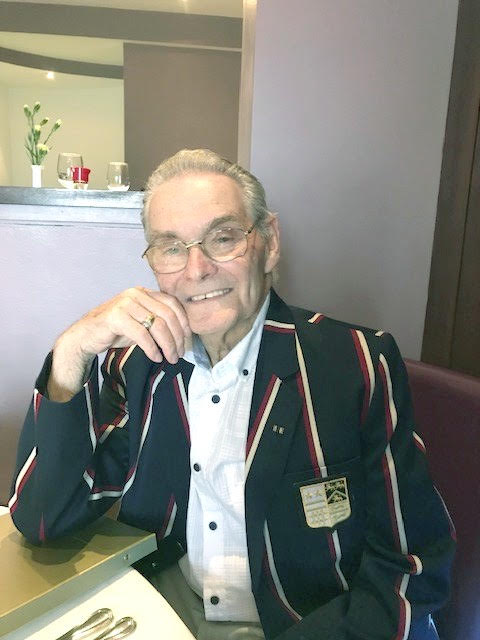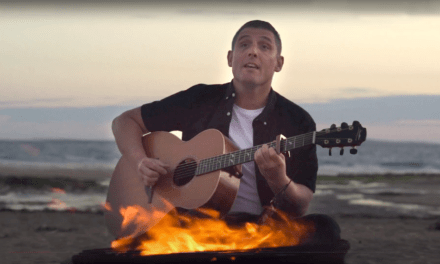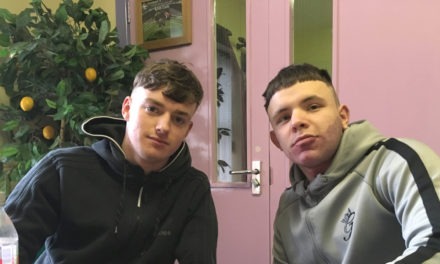When Ray Lucey spoke to Tomi Reichental, one of the last two Holocaust survivors living in Ireland, he talked about the Nazi exterminations and warned about the future of humanity if things continue as they are.
INTERVIEW BY RAY LUCEY
Suzi Diamond and Tomi Reichenthal are Ireland’s two last remaining Holocaust survivors. As they age, their voices grow louder:
Thursday, January 16th, 2020 was an historic occasion for the Tullamore Toastmasters. That was the day they had the honour of hosting Tomi Reichental, Holocaust survivor and human rights campaigner.
A capacity crowd of around 250 people heard that, when he was just nine years old, the Nazis imprisoned Tomi and his family in the Bergen-Belsen forced labour camp. Over the course of World War II, 70,000 Jews perished there. That astronomical figure included 35 members of Tomi’s family.
He had many haunting experiences. One in particular stuck with him: When his 76-year-old grandmother died in the camp in March 1945, young Tomi had to watch as her body was dragged from their hut and thrown on top of a wheelbarrow already overloaded with dead bodies, then dumped on the piles of corpses outside.
Talking publicly about these events makes them real for Tomi all over again, and he now relives them, feeling them in a way he didn’t at the time.
“When I was a kid, I didn’t feel the dehumanisation [of wearing the yellow star], but now I feel how dehumanised I was at the time,” said Tomi. “This sort of overcomes me. Imagine. I had to wear this thing so people can point their finger at me as I am a Jew.”
While none of us can truly understand the horrors and suffering young Tomi faced, it is without doubt that he fully understands the ecosystems and behaviours that led to the waking nightmare he found himself in. Now, with all the benefit of hindsight, Tomi can see the same attitudes rising again.
“It starts with whispers, then abuse, and the final stage was murder,” he said “That’s how it started in the 1930s. As time went on, everyone was a bystander. You must not be a bystander. At the time, nobody did anything, and when they realised what was going on it was too late.”
Tomi had stark warnings for those alive today, especially the younger generations. He believes we have to remain vigilant, particularly in a world where fake news, racism and discrimination are increasingly visible and prevalent.
“[Refugees] now have a similar experience [to the Jews during World War II], where the abuse is going on. People are running away and want a chance to live somewhere. They are not doing it to better their lives. They’re doing it out of necessity.
“The Irish people went all over the world, facing starvation and hunger. They were welcomed everywhere, but now, when other people are needing some sanctuary, Ireland is not very enthusiastic to do anything about it, which is again very sad. A couple of hundred refugees? It’s nothing. We could have taken more, and we should take more.”
It’s not just in relation to those from outside Irish borders where Tomi is seeing troubling signs. He has seen the situation surrounding Travellers, and heard much of the vitriol and hate speech directed towards them, often by people in power.
“I think there should be repercussions for people [who use hate speech, then hastily apologise later]. These are the things I am talking about – a whisper in towns, and how it develops. If we don’t stand up and say, ‘It is not enough that you are apologising, because at the time you said it, you meant it’… It shouldn’t be allowed to get any further. They should resign or be forced out, absolutely. That’s my opinion.”
As Tomi utilises his personal story to warn against a repetition of history, it should come as no surprise that he views fake news and historical revisionism (such as Holocaust denial) as incredibly dangerous.
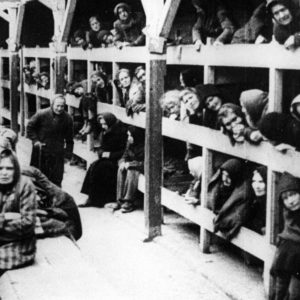
Nazi ideology cost millions of people their lives.
“You have to have accurate, truthful history so things are not repeated,” he said. “I am keeping the subject of the Holocaust alive. I’m making sure [people know] that the largest tragedy in human history not only happened, but that it was pre-meditated and very carefully planned. And that [the Nazis] nearly succeeded in their aim.
“It’s different when a teacher talks about the Holocaust and when I talk about the Holocaust. When I speak, they will never forget it again.”
And it’s not just thin parallels that Tomi is now seeing. The hatred of Jewish people that drove the Holocaust is still very much in evidence.
“My own country, Slovakia – before the War, about 3% of the population was Jewish. There were about 90,000 Jews living there in Slovakia. Of course, the propaganda against the Jews was that if anything went wrong in Slovakia, it was the fault of the Jews. Today, again, the anti-Semites are blaming the Jews. There are only about 300 Jews left [in the country] – all these people are in their 80s or 90s, you know, old people – but still, when things go wrong, the anti-Semites say it’s the fault of the Jews.”
Not only is the hatred of the Jewish people still continuing in strongholds around the world, there are other comparable genocides taking place in our lifetime. In our recent history. Tomi mentioned Aung San Suu Kyi, and Myanmar’s cleansing of Rohingya Muslims.
He has a particularly bleak outlook on how humanity is once more turning a blind eye.
“I sometimes say – and people condemn me for it – that what is happening now is worse than the Holocaust. I’m not saying this about the crimes or the killing but, at the time, people said they didn’t know [what was happening]. And we have to take it on the face of it that there were people who didn’t know. Today, they can’t say that. We all see it on the television and we still can’t do anything. I can’t understand how the human race is letting these things happen.”
At the root of it, Tomi’s message is one of education, peace and respect. He encourages those who come to hear him speak to “embrace and respect the minorities in Ireland”.
He has a warning, too, for those who choose a different path. Hate, he says, is self-defeating.
Instead, he counsels, “make peace with your past, so it doesn’t spoil your present”.
* Ray Lucey conducted this interview jointly for ‘Changing Ireland’ and ‘Travellers’ Voice’.
Read Tomi Reichental’s book:
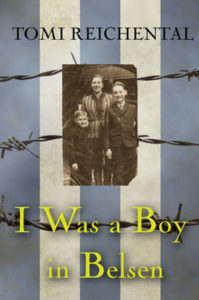
Tomi Reichental’s 368 page book ‘I was a boy in Belsen’ was published in 2011.
Mr Reichendal remained silent for 50 years of his life about the Holocaust. However, as one of the few remaining survivors he knew time was running short and wrote ‘I Was a Boy in Belsen’ (O’Brien Press) to tell his story.
Best price we found (€12) here: https://www.dubraybooks.ie/i-was-a-boy-in-belsen_9781847177933
Category: People, People Profiles.

